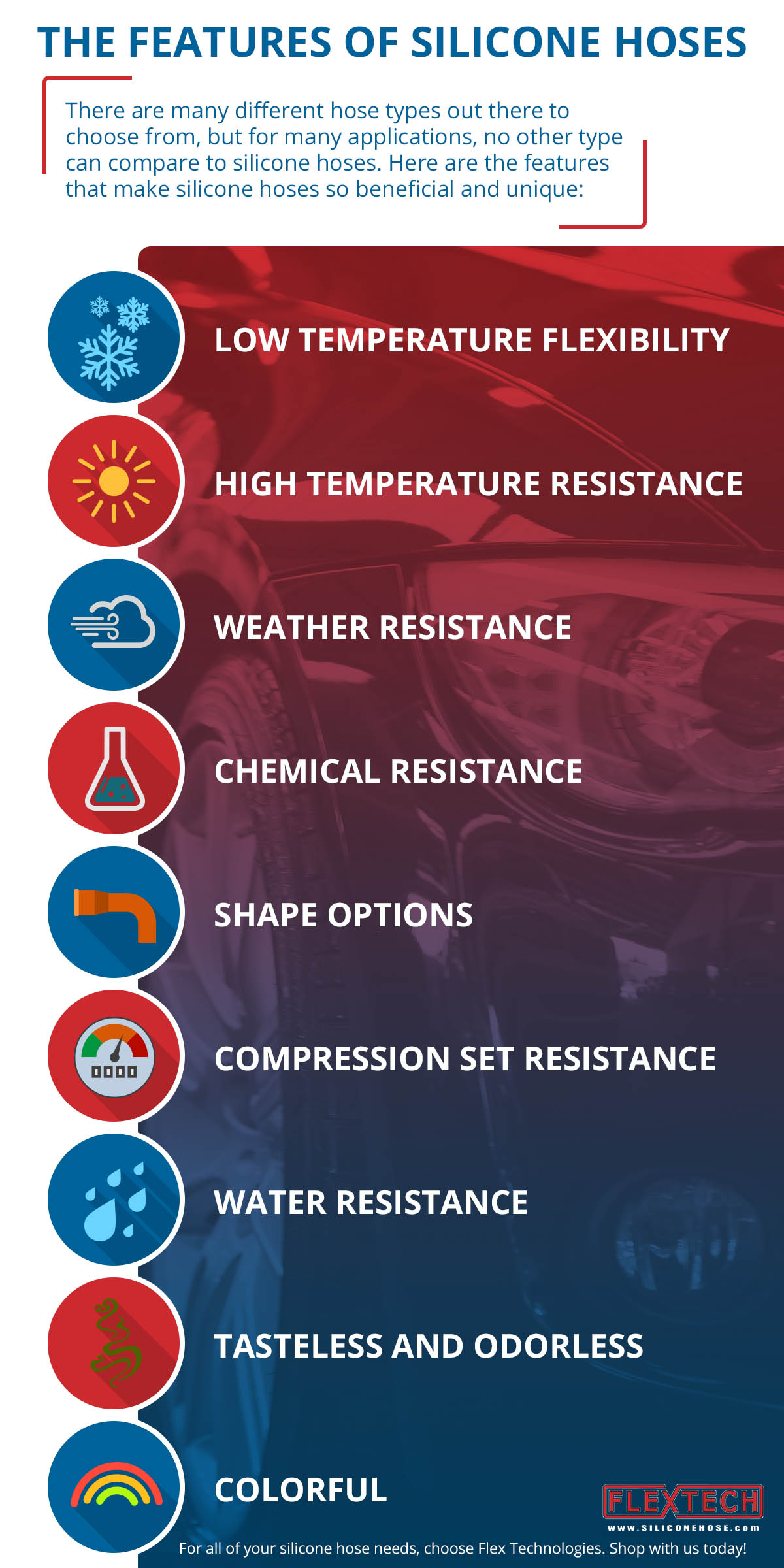![]()
What makes silicone hoses different from other hose types?
Whether you’re using hoses for auto detailing, manufacturing, home brewing or anything else, there are many different hose types to choose from. One of the best hose types for these and many other applications, though, is silicone, and there are many reasons why. To help you understand the difference that silicone hoses can make, the professionals at Flex Technologies have outlined the features of silicone hoses in the following list:

Low Temperature Flexibility
Unlike most hoses, which can get stiff in the cold, silicone hoses offer dynamic flexibility in almost any temperature, including temperatures as slow as -65 degrees Fahrenheit.
High Temperature Resistance
One of the biggest advantages silicone hoses have compared to black rubber hoses is their ability to perform in high-temperature environments. Aramid-reinforced silicone hoses can withstand temperatures of up to 350 degrees Fahrenheit, all while retaining their elongation, tensile strength and resistance to tears and abrasions.
Weather Resistance
Silicone hoses are resistant to the many things that cause other hose types to weather, including sunlight, rain, ozone, atmospheric gases and water. Silicone hoses can perform in almost any environment, even dry environments that have lots of harsh sunlight.
Compression Set Resistance
Silicone hoses have what it takes to resist deformation or compression, especially in extreme high or low temperatures. This is particularly important in applications where silicone is flexed due to the movements of nearby components.

Water Resistance
Compared to other hose types, silicone hoses offer superior water resistance. Silicone hoses have a very low degree of water absorption, and even after silicone has been immersed in water for a long period of time, its mechanical properties show very little change.
Chemical Resistance
Though silicone is not resistant to fuel, it does offer excellent resistance to many common chemicals and fluids. Here are some of the many chemicals that silicone is resistant to:
- Citric Acid
- Natural Gas
- Vegetable Oil
- Heavy Water
- Water Zinc Salts
- Potassium Chloride
- Ethylene Glycol (Antifreeze or Coolant)
- Sodium Hydroxide
- 3 Mole Methanol
 Shape Options
Shape Options
Unlike other hose types, silicone is uniquely able to be formed into many different complex shapes. In fact, here at Flex Technologies, we offer more than 2,000 designs of silicone hoses to choose from, and if we don’t have the shape you need, we can design it for you.
Tasteless and Odorless
Because silicone hoses don’t contain sulfur or any other chemicals that produce gas or generate outgassing, silicone hoses don’t corrode or stain other materials. Silicone also won’t support the growth of bacteria and mold, like organic hose materials do.
Colorful
What may be the biggest selling point for consumers looking for a specific look are the colors silicone comes in. Silicone hoses come in many different colors, and whether you’re looking for a blue, red or black hose, you’re sure to find it in a silicone hose.
Experience the many benefits of silicone hoses with Flex Technologies.
As you can see, silicone hoses are equipped with so many must-have features that make them perfect for a variety of applications. No matter what you need silicone hoses for, you can rest assured that Flex Technologies has you covered. Not only do we have a huge inventory of hoses to choose from, but we also offer custom hoses. Shop with us today!
 Default Currency
Default Currency
 Mexican Pesos
Mexican Pesos
 Canadian Dollar
Canadian Dollar

